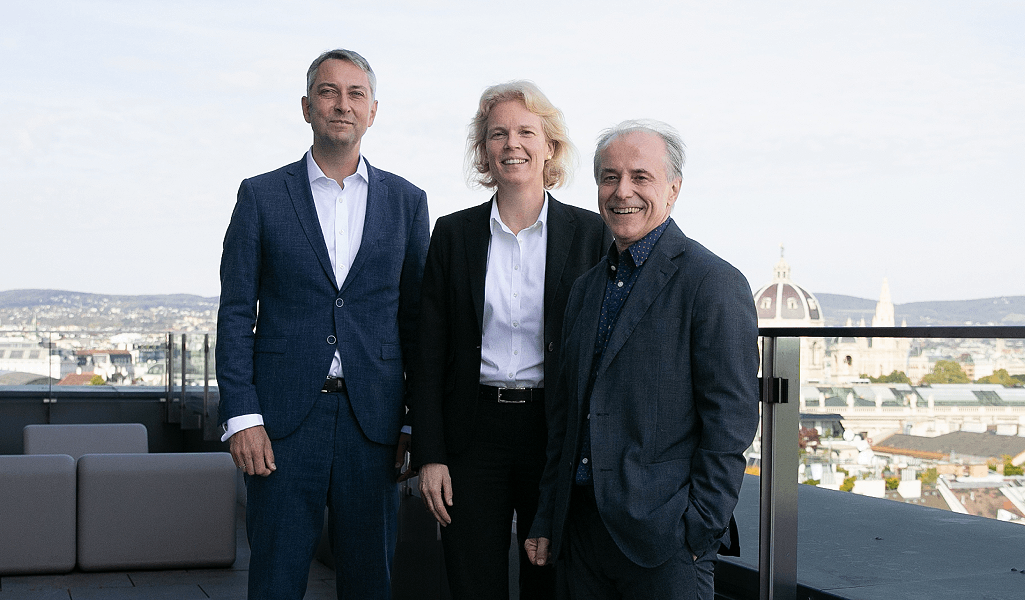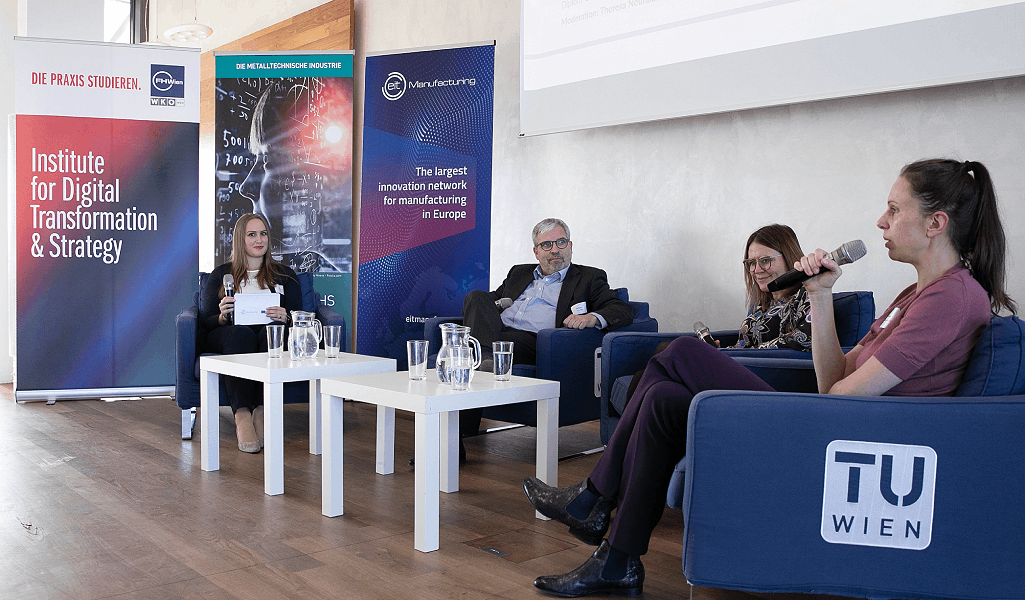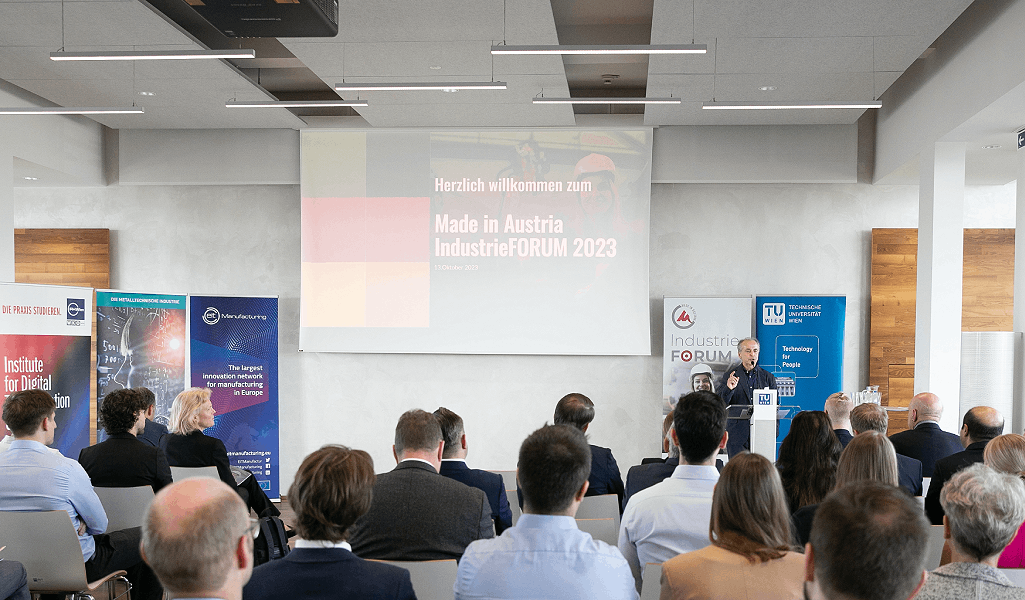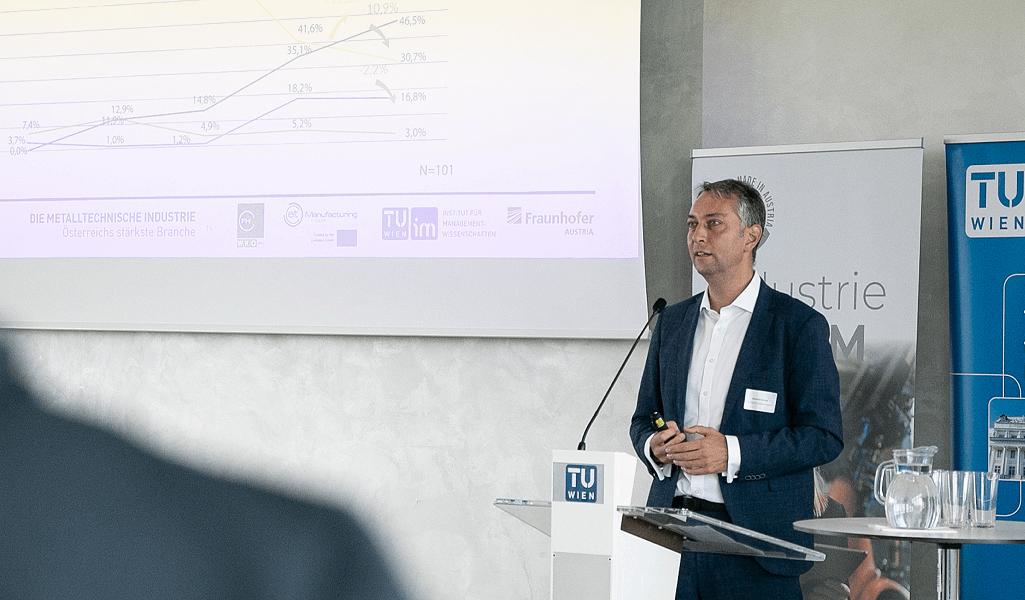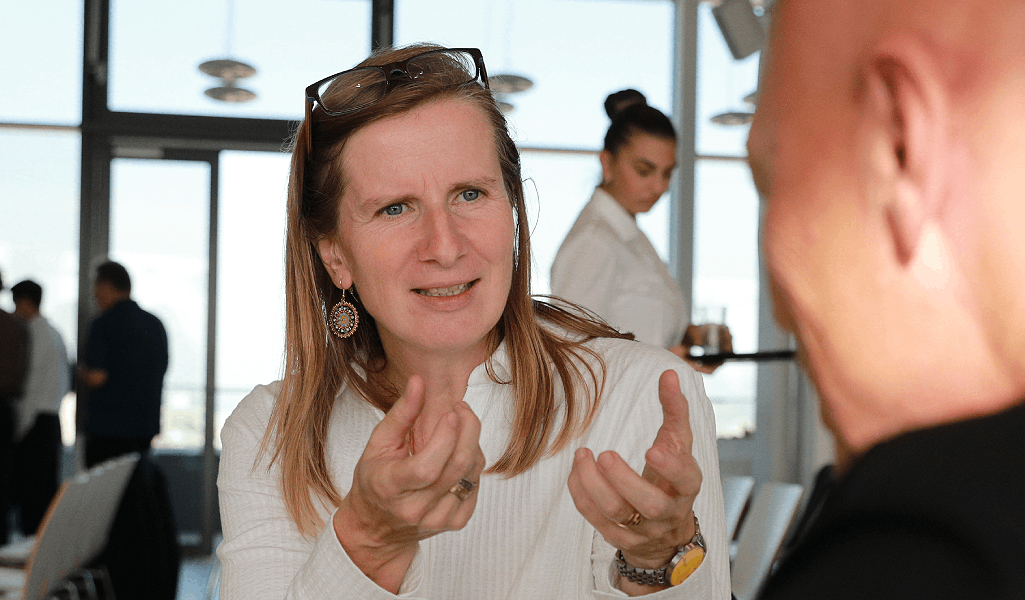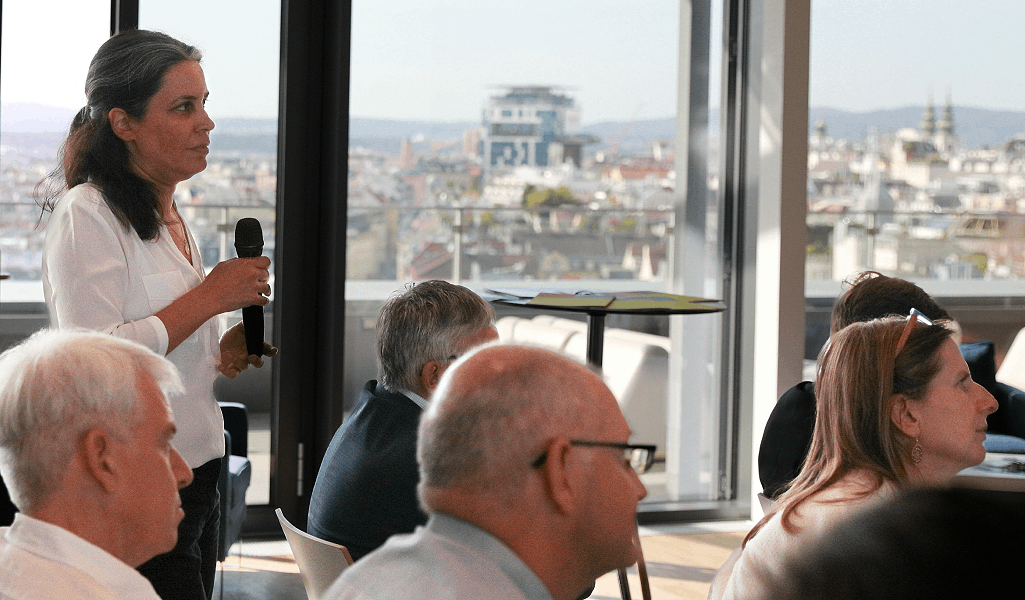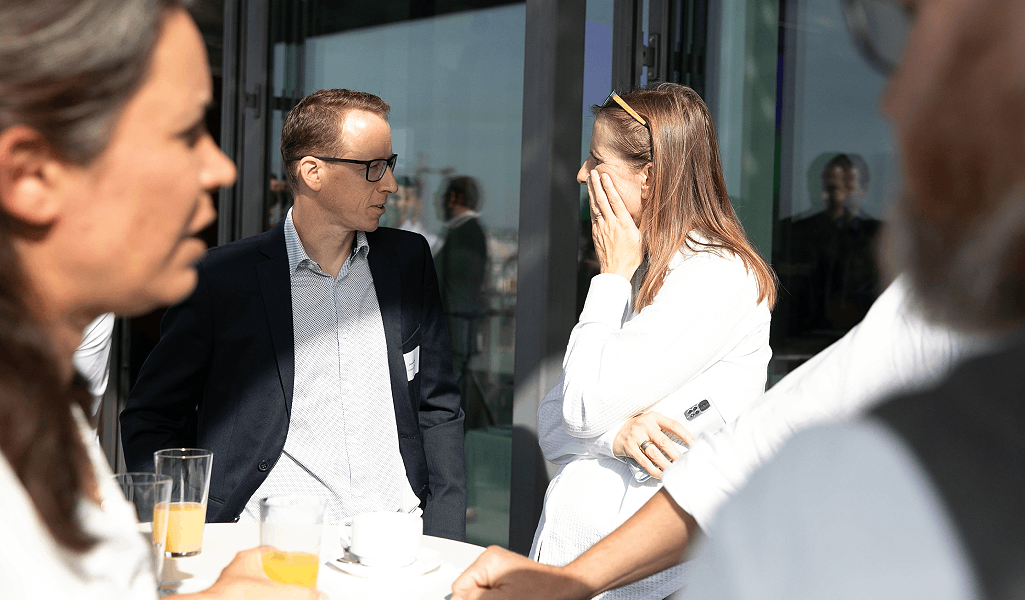The fifth IndustriePANEL survey conducted by TU Wien in cooperation with FHWien der WKW shows the high value of human labour despite the high degree of automation.
As part of the “Made in Austria IndustrieFORUM”, the results of the 5th IndustriePANEL survey were presented at TUtheSKY above the rooftops of downtown Vienna. The study presentation was only the prelude to a day full of exciting lectures with top experts from business, science and society. The spectrum ranged from the renowned expert for work sciences Katharina Hölzle (University of Stuttgart) and her keynote on “Production work in transition – innovation through the symbiosis of man and machine?” to the concluding panel discussion “European AI Act: curse or blessing?”.
The results of the 5th Made in Austria IndustriePANEL 2023
Even though the global business situation of companies is perceived as cautiously positive, the current study results confirm a weakening competitiveness of the manufacturing sector in Austria – a trend from the previous year that accelerated in the 5th IndustriePANEL “Made in Austria: Future of Production in Austria”. Once again, more than 100 managers from manufacturing companies took part in the survey, which has been conducted annually since 2019. For the first time, existing and planned initiatives in the direction of the circular economy were also surveyed. The results show that 75 percent of the companies surveyed are already taking measures for sustainable value creation.
Established digitalisation in a sign of sustainable value creation
“Material recycling, resource reduction, sustainable forms of energy as well as repair and reuse were named as important approaches to the circular economy,” said Sebastian Schlund, Director of the Institute of Management Sciences (IMW) at TU Vienna, at the presentation of the study. “In addition to the economic relevance due to lower production costs, the respondents expect their circular initiatives to have a lower environmental impact and a more sustainable image. Furthermore, these sustainability measures already generate an average of 14 percent of the total turnover at the companies represented in the panel.”
The level of automation in the survey has reached a new high. “Despite an average of 407 robots per 10,000 industrial workplaces, the trend towards cobots, assistance systems and machine learning are slowing down to a certain degree,” adds Walter Mayrhofer, Head of Research at FHWien der WKW. “The results indicate that the big hype is over and that the former trend topics have now arrived in company practice.”
Shortage of workforce instead of shortage of skilled workers
For Johannes Hunschofsky, Managing Director of EIT Manufacturing East, “the human factor continues to enjoy a high status in Austrian production work despite increasing automation. Compared to the already high level of the previous year, the appreciation of human labour in the surveyed companies has risen to 99 percent.” While the optimistic mood prevails in international personnel development, the expectations for the Austrian locations are more subdued, but still positive. “What is new is that personnel is now being sought at all qualification levels. In this respect, the shortage of skilled workers has become a shortage of labour.” According to the study authors, the challenges associated with this range from education and training systems, childcare facilities and migration policy to the organisation of employment.
Furthermore, continuing problems in the supply chains were pointed out, which led to longer delivery times for 65 percent of the companies surveyed. Austrian companies counter these delays with a clear focus on complex and multi-variant production, which underlines the flexibility of Austrian production sites.
